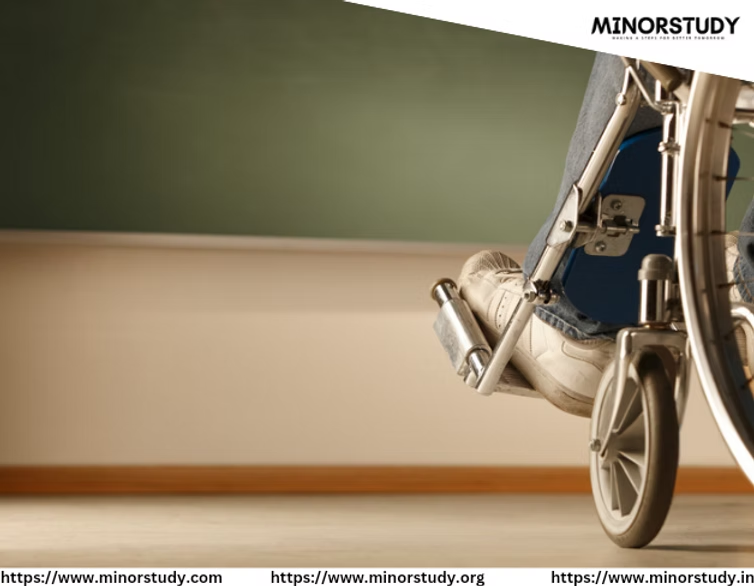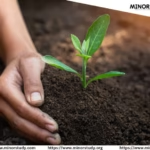♿ International Day of Persons with Disabilities (IDPD): 9 Empowering Facts That Make It Truly Inspiring
Every person matters. Every voice counts. Every ability is a gift.
These words resonate deeply each year on December 3rd, when the world comes together to mark the International Day of Persons with Disabilities (IDPD) — a powerful reminder that inclusion, dignity, and accessibility must not be optional but universal.
- 🕰️ History of the International Day of Persons with Disabilities
- 📊 9 Empowering Facts About Persons with Disabilities
- 📅 Timeline of the International Day of Persons with Disabilities
- ❓ Frequently Asked Questions (FAQs)
- 1. What is the International Day of Persons with Disabilities (IDPD)?
- 2. When is it observed?
- 3. Why is this day important?
- 4. Who can participate in IDPD events?
- 5. What can I do to support this cause?
- 🌟 Significance of the International Day of Persons with Disabilities
- 1. Promotes Human Rights
- 2. Raises Awareness
- 3. Drives Policy Changes
- 4. Encourages Innovation
- 5. Celebrates Diversity
- 🌍 Global Observance and Participation
- 🎉 Wishing Message for International Day of Persons with Disabilities
- 👨👩👧👦 Importance in Our Lives
- 📌 Important Points to Remember
- 🧭 Daily Life Impact
- ✅ Conclusion: Inclusion is Not Charity, It’s Equality
In this article, we’ll explore the history, facts, timeline, FAQs, significance, observance practices, and societal impact of IDPD. With a human-friendly tone, it aims to inspire empathy, awareness, and meaningful action toward building a world where ability—not disability—is the focus.
🕰️ History of the International Day of Persons with Disabilities
The journey of recognizing and empowering persons with disabilities has been long but transformative.
Key Milestones:
1981: The United Nations proclaimed the International Year of Disabled Persons, focusing on equality and rehabilitation.
1982: The World Programme of Action Concerning Disabled Persons was launched.
1992: The UN General Assembly officially proclaimed December 3rd as the International Day of Disabled Persons, now known as IDPD.
2006: The adoption of the Convention on the Rights of Persons with Disabilities (CRPD) further solidified global commitment.
The day now stands as a cornerstone for raising awareness, promoting rights, and celebrating achievements of persons with disabilities across the globe.
📊 9 Empowering Facts About Persons with Disabilities
| Fact | Details |
|---|---|
| 1.3 billion | People live with some form of disability worldwide (16% of the population) |
| 80% | Of persons with disabilities live in developing countries |
| 15% | Of the global population experiences some form of disability |
| Accessibility gap | Many public spaces and digital platforms are still not fully accessible |
| Unemployment rate | Persons with disabilities are twice as likely to be unemployed |
| Education barrier | 90% of children with disabilities in developing nations don’t attend school |
| CRPD signatories | Over 180 countries have signed the UN disability rights treaty |
| Innovative tech | Assistive tech industries (like screen readers and prosthetics) are booming |
| Inclusion pays off | Companies with inclusive hiring outperform others financially and culturally |
📅 Timeline of the International Day of Persons with Disabilities
| Year | Milestone |
|---|---|
| 1981 | International Year of Disabled Persons |
| 1982 | UN adopts World Programme of Action Concerning Disabled Persons |
| 1992 | IDPD declared by the United Nations |
| 2006 | UN adopts the Convention on the Rights of Persons with Disabilities |
| 2018 | Theme: “Empowering persons with disabilities and ensuring inclusiveness and equality” |
| 2022 | Theme: “Transformative solutions for inclusive development” |
| 2023 | Theme: “United in action to rescue and achieve the SDGs for, with and by persons with disabilities” |
❓ Frequently Asked Questions (FAQs)
1. What is the International Day of Persons with Disabilities (IDPD)?
It is a United Nations-observed day to promote the rights, dignity, and well-being of persons with disabilities in every aspect of political, social, economic, and cultural life.
2. When is it observed?
Every year on December 3rd.
3. Why is this day important?
It raises awareness about challenges faced by persons with disabilities and promotes equal participation in all walks of life.
4. Who can participate in IDPD events?
Everyone — from schools and corporations to individuals and policymakers — can take part through campaigns, discussions, volunteering, and more.
5. What can I do to support this cause?
Educate yourself about disability issues
Use inclusive language
Volunteer or donate to disability support organizations
Advocate for accessible infrastructure
Encourage inclusive hiring and education
🌟 Significance of the International Day of Persons with Disabilities
1. Promotes Human Rights
IDPD ensures that the basic rights of dignity, inclusion, and independence are recognized for all, regardless of physical or mental ability.
2. Raises Awareness
It helps dismantle the stigma, myths, and social barriers that people with disabilities often face.
3. Drives Policy Changes
The day influences governments and institutions to rethink policies, introduce inclusive laws, and fund accessibility projects.
4. Encourages Innovation
From braille devices to voice assistants, disability awareness drives technological advancements that help everyone.
5. Celebrates Diversity
People with disabilities bring unique perspectives, strengths, and creativity, enriching workplaces and communities.
🌍 Global Observance and Participation
On December 3rd, the world unites in celebration and advocacy through:
Conferences and webinars
Art exhibitions and cultural programs showcasing differently-abled artists
School awareness sessions
Inclusive sports events
Social media campaigns with hashtags like #IDPD #DisabilityInclusion #EqualWorld
Governments, schools, corporations, NGOs, and activists participate to empower, educate, and engage.
🎉 Wishing Message for International Day of Persons with Disabilities
“On this International Day of Persons with Disabilities, let us stand together to embrace diversity, remove barriers, and build a world where everyone is valued equally. Every ability matters. Every life inspires.”
🌼 Happy International Day of Persons with Disabilities! 🌼
Let’s choose empathy over apathy and action over silence.
👨👩👧👦 Importance in Our Lives
Disability inclusion is not just a rights issue—it is a human issue that impacts our daily life more than we realize.
In Daily Life:
Inclusive public transport benefits the elderly, pregnant women, and people with injuries too.
Voice-controlled tech helps not only the blind but also multitaskers.
Ramps and elevators improve mobility for everyone.
Inclusive education nurtures empathy and collaboration from childhood.
When society accommodates people with disabilities, everyone benefits.
📌 Important Points to Remember
Disability is not a limitation, but a variation of human experience.
Accessibility is a basic right, not a luxury.
People with disabilities have equal dreams, talents, and ambitions.
Inclusion begins with awareness and attitude.
Language matters: say “person with a disability” instead of “disabled person“.
🧭 Daily Life Impact
From the elevator in your building to subtitles in videos, inclusive practices make everyday life more humane and livable for all.
You may never notice the barriers, but persons with disabilities do — every day.
By pushing for accessibility, you become part of a kinder society.
Supporting inclusion policies means better job access, education, and healthcare for millions.
✅ Conclusion: Inclusion is Not Charity, It’s Equality
The International Day of Persons with Disabilities is not just about celebrating courage and resilience — it’s about recognizing the right to equal opportunity, respect, and dignity.
Let this day ignite in us a renewed commitment to:
Create inclusive schools and workplaces
Support disability-friendly technologies
Break down physical, emotional, and digital barriers
Replace pity with partnership and tokenism with transformation
“Disability is not a brave struggle or courage in the face of adversity… disability is an art. It’s an ingenious way to live.” – Neil Marcus
Let’s ensure every person, regardless of ability, has the chance to live fully, dream boldly, and shine brightly.
#IDPD #DisabilityRights #InclusionMatters #EqualWorld #AccessibilityForAll #EmpowerAbilities









As a Newbie, I am permanently searching online for articles that can help me. Thank you